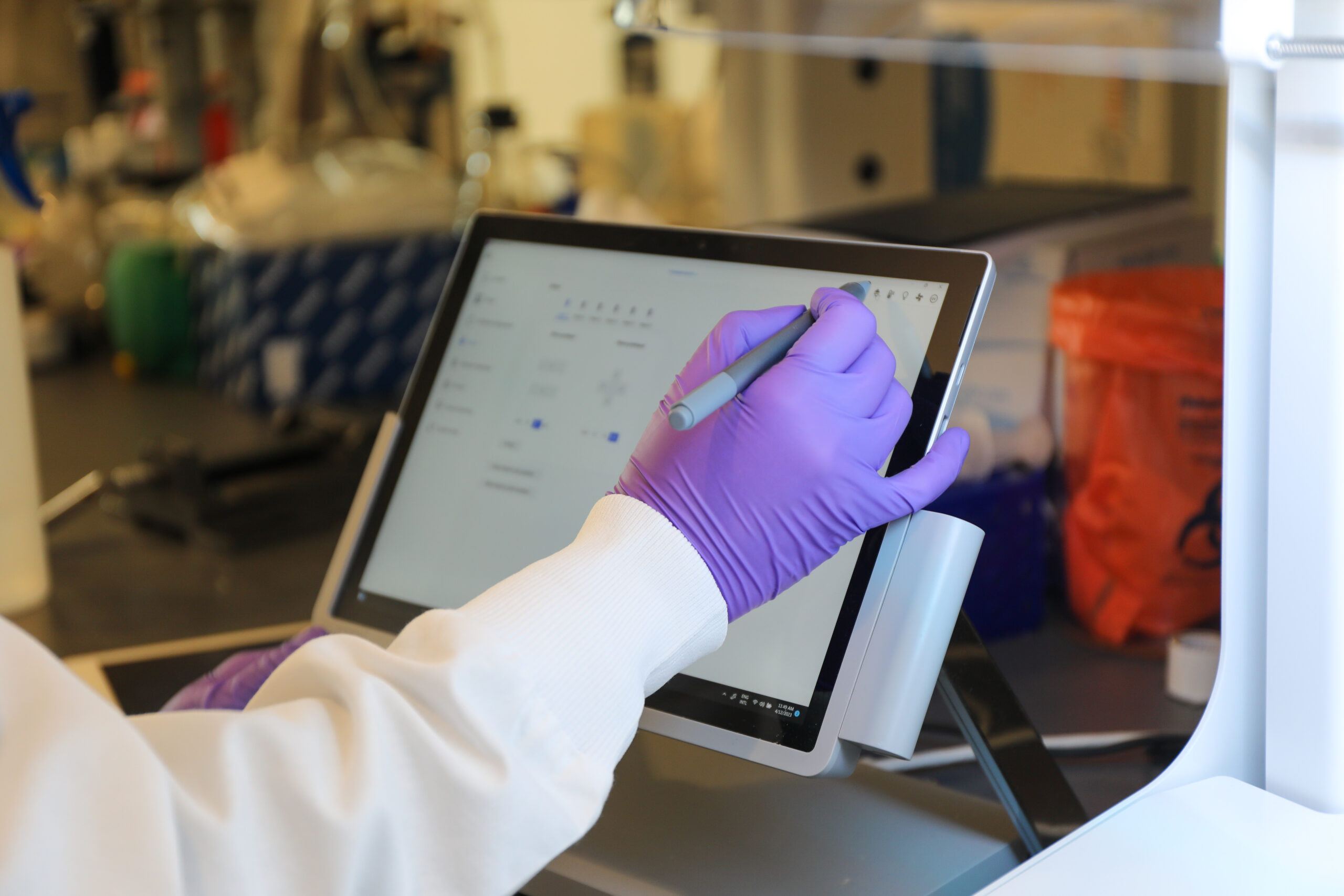Researchers at OHSU are innovating the future of health care. They drive groundbreaking discoveries with a commitment to enhancing health and well-being in Oregon and beyond. Meet some of the OHSU researchers who are revolutionizing science across an array of fields.

Liz Rubin, M.D.
Assistant Professor of Obstetrics and Gynecology, School of Medicine
There are many unanswered questions surrounding IVF and transgender patients, particularly for those using testosterone-based gender-affirming hormone therapy. With her research, Liz Rubin is finding answers.
“The studies on this are really limited; you can count them on two hands, and the majority of these studies have less than 10 subjects,” she explained during a presentation.
Rubin is figuring out if patients on testosterone should pause their hormone therapy before the IVF process, and how previous hormone therapy could affect their eggs and embryos.
A retrospective study she conducted with OHSU patients found that the quality of embryos in patients who had discontinued testosterone for longer was better. “This is starting to answer the clinical question of ‘How long do I need to stop for?’”
Looking forward, Rubin hopes to solidify timelines around pausing hormone therapy prior to IVF. “I’ve been very fortunate to have a multidisciplinary membership team from the clinical side and the research side to talk about ‘How do I take this clinical interest and make it into a research interest,’” she said. “I’ve been able to be really well supported.”
Angelica Morales, Ph.D.
Assistant Professor of Psychiatry, School of Medicine
Angelica Morales is passionate about understanding and preventing substance abuse. A part of OHSU’s Center for Mental Health Innovation, Morales’ study of alcohol use is motivated by her own family’s struggle with substance use disorders.
“The hypothesis [of my study] is that drinking alcohol can make some people more impulsive or reduce their cognitive control, and they may be more likely to make risky decisions, like cigarette smoking, when they use alcohol that they wouldn’t make if they weren’t under the influence of alcohol,” Morales said.
In an ongoing study, Morales is analyzing brain activity and decision making. Participants are either given a drink of alcohol or a placebo and then look at images of cigarettes to measure how much they crave smoking. After a year, the same subjects are interviewed again to see if their alcohol, nicotine or other drug use has changed.
“Ultimately, my goal is to use neurobiology to inform which treatment is best for a person and to reduce substance use disorders in the United States,” Morales said.


Elizabeth Wood, Ph.D.
Postdoctoral Trainee, Department of Psychiatry, School of Medicine
Improving infant health starts with prenatal care, as the prenatal health of birthing parents has a large influence on how babies grow up and interact with the world. The placenta could be an exciting window into prenatal health. Elizabeth Wood is studying placental inflammation and its impact on infant health, in the hopes of enhancing the well-being of future generations.
In her work, Wood has found that inflammation of the placenta can be an indicator of an infant’s eventual brain and behavioral health. In an ongoing study that works with over 300 parent and child pairs, Wood and her colleagues follow birthing parents through their pregnancies, collect the placentas at birth, and then the parents and infants come back to the lab each year for behavioral assessments.
“In my work, we’re often thinking about diet and body composition as being precursors to inflammation during pregnancy,” Wood said at a presentation. Her work revealed that a child’s tendencies for difficulty recovering after experiencing distress, a behavioral indication of risk for future mental health concerns, can be predicted by levels of an inflammatory protein, interleukin 6 (IL-6), in the placenta — and IL-6 levels can be influenced by prenatal factors like diet, body composition, and stress.
The ongoing study’s findings offer insight into a potential risk marker of infant brain and behavioral health. “This is something I’m excited to keep exploring with our samples and ongoing data collection efforts,” Wood said.
Zheng Xia, Ph.D.
Associate Professor of Biomedical Engineering, School of Medicine, and member of the Knight Cancer Institute and the Center for Biomedical Data Science
Cancer biologists often deal with overwhelming amounts of data when studying the disease, which can bog down research and make potential cures harder to find. Thanks to his expertise in machine-learning, Zheng Xia is developing new bioinformatics tools to help cancer researchers unearth answers that may have been impossible to find due to the complexity and vastness of the data.
“I felt it very worthy of my effort to go into this field … For me, it’s very important to be guided by significant biological or clinical questions, but because my background is engineering, I don’t know the clinically important questions,” Xia said. “Through collaborations, I learn how to think about problems and how biologists generate hypotheses, which in turn motivates the design of novel algorithms.”
Currently, Xia is using his engineering skills to better understand the transformation and interactions of cells in the tumor microenvironment at single-cell resolution. Xia and his lab colleagues have recently developed PENCIL, a pioneering machine-learning model that uses a strategy called “learning with rejection,” which gives the system the ability and freedom to reject low-confidence decisions.
“This is a very new idea,” Xia said. “I think we are the first to apply learning with rejection in biomedical research … I feel there’s never been a better time to be doing big-data analysis and machine learning for translational cancer research — the DNA of the Knight Cancer Institute.”





